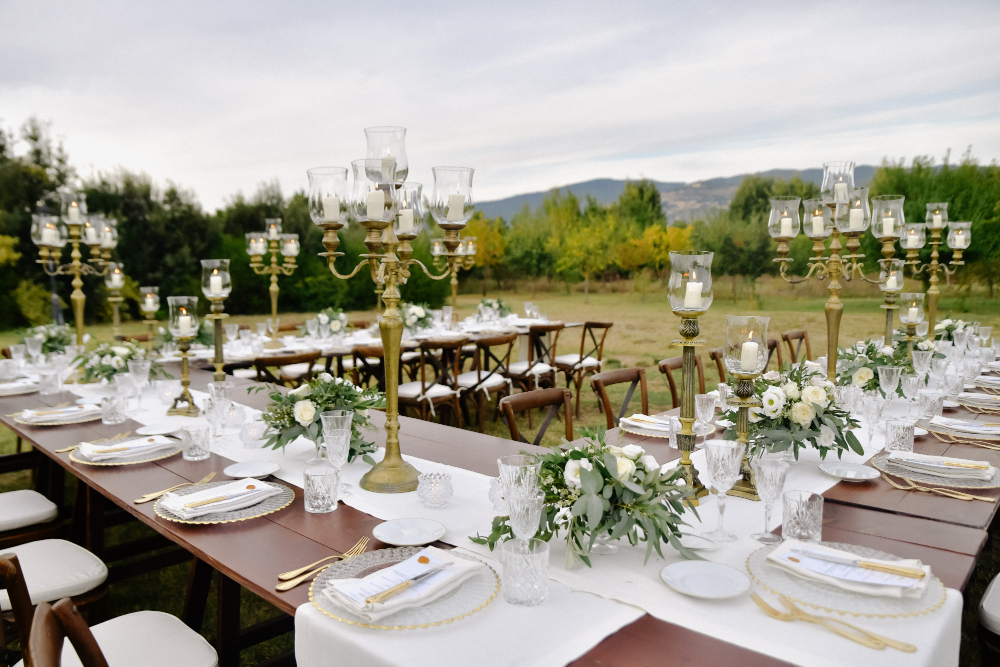
In the face of escalating environmental challenges, the event planning industry is undergoing a transformative shift towards sustainability. This movement is not just about reducing the carbon footprint of individual events but about embedding eco-conscious principles into every aspect of the planning process. Sustainable event planning recognizes the significant impact that gatherings, large and small, have on our planet and seeks to minimize this through thoughtful, eco-friendly choices. This comprehensive guide explores the pillars of sustainable event planning, from waste reduction to green catering options, offering practical advice for organizing events that are both memorable and mindful of environmental stewardship.
The Pillars of Sustainable Event Planning
Sustainable event planning rests on three foundational pillars: waste reduction, energy efficiency, and sustainable sourcing. These core principles guide event planners in making decisions that align with environmental sustainability goals.
Waste Reduction: A key objective in sustainable event planning is minimizing waste. This includes reducing the use of disposable items, encouraging recycling and composting, and planning for zero-waste events where possible. Digital invitations, reusable signage, and decorations, and compostable tableware are effective strategies for cutting down on waste.
Energy Efficiency: Selecting venues that utilize renewable energy sources or implementing energy-saving measures during an event can significantly reduce its carbon footprint. This might involve using LED lighting, optimizing natural light, or ensuring efficient heating and cooling systems are in place.
Sustainable Sourcing: This pillar emphasizes the importance of choosing suppliers and materials that prioritize sustainability. From locally sourced food to eco-friendly decor and materials, sustainable sourcing supports local economies and reduces environmental impact.
Eco-friendly Decor and Materials
Decor and materials play a crucial role in setting the ambiance of an event but often contribute to its environmental footprint. Sustainable event planning encourages the use of eco-friendly decor options that do not compromise on aesthetics. Biodegradable, recycled, or reusable materials can serve as innovative and beautiful decorations. For instance, using potted plants or trees as decor not only enhances the visual appeal but also allows for the plants to be replanted or donated after the event. Similarly, materials such as bamboo, recycled paper, and organic fabrics can be used to create stunning, eco-conscious settings.
Green Catering Options
Catering is another critical aspect of event planning with significant environmental implications. Sustainable catering focuses on minimizing food waste, using locally sourced and organic ingredients, and providing plant-based menu options. Such practices not only reduce the carbon footprint associated with food production and transportation but also cater to a growing demand for healthy and environmentally friendly food choices. Moreover, serving water in dispensers rather than bottled water and using bulk condiments can further reduce plastic waste.
Measuring the Impact of Your Event
Assessing and minimizing the environmental footprint of an event involves careful planning and monitoring. Event planners can use various tools and methodologies to measure the carbon footprint of their events, taking into account factors such as transportation, energy use, and waste production. By setting sustainability goals and tracking progress, planners can identify areas for improvement and make informed decisions to enhance the eco-friendliness of their events. Engaging attendees in sustainability efforts, such as promoting carpooling or public transportation and providing clear recycling instructions, can also contribute to reducing the overall impact.
Conclusion: A Commitment to Sustainability in the Event Industry
The shift towards sustainable event planning reflects a broader recognition of the need for environmental responsibility in all sectors of society. By making eco-friendly choices, event planners can lead by example, showcasing how sustainability can be seamlessly integrated into the fabric of our celebrations and gatherings. The benefits of this approach extend beyond the immediate environmental impact, fostering a culture of sustainability that influences attendees and the wider community.
Embracing sustainable event planning is not only a moral imperative but a practical one, offering a path to events that are not just successful but also sustainable. As the event planning industry continues to evolve, a commitment to sustainability will undoubtedly be a defining feature of its future, ensuring that we can celebrate today without compromising the well-being of our planet tomorrow.
